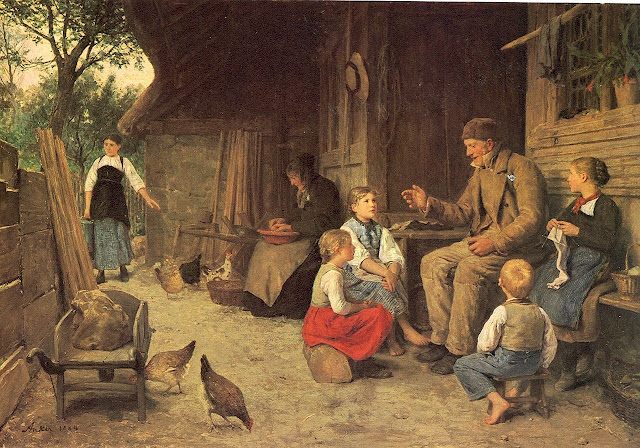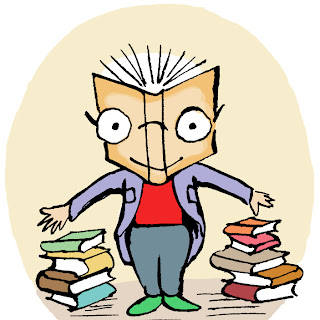ONLINE KNOWHOW Podcasting
Have you thought about starting a podcast? Julie Sullivan explains why podcasting could be a great way to connect with your reading community.
What exactly is a podcast?
These short talks or interviews, downloaded or streamed through your headphones or over the car radio, are a way of learning something or being entertained as you drive, work out, cook, or commute.Why would a children’s writer start a podcast?
Well, it’s a way to differentiate yourself, pull in a future audience, meet other writers, and learn. Maybe you'd like to start building an adult audience that will buy your books (or want to buy your future books). You can interview colleagues or experts, teach, talk about books or your writing, or just tell stories. Children love stories! Their parents do, too. |
| Parents and children can share a good podcast |
Why podcasts?
So what are the advantages of podcasting over other ways of reaching your readers? One is that your audience is more engaged. In the USA, where most of the research about podcasts has been done, about one in five Americans — up 11 percent in a year — listen to them regularly.People feel evangelical and passionately loyal about their podcasts, maybe because it feels almost like a personal relationship when you have someone talking in your ear. The audience is not as distracted; online, millions of other possibilities are a second away. In the UK, podcasters are still a fairly small minority, but the trend is shooting upward. One big advantage to podcasting here is that you won’t have as much competition; it’s early days still. It’s cool (for now!). Another is that you might even make money.
 |
| A labour of love can still help pay the rent |
There are many guides to starting a podcast available online, and it's also worth joining Facebook groups on the subject. They are full of experienced podcasters who are happy to give advice to newbies. Podcast Movement Community, for example, is a very active group with more than 8000 members.
What do you need?
- A microphone, or a headset with a microphone. These need not be expensive. If you can afford it, get one that is good at cutting out interference from background noise.
- Software for recording and editing. Check your computer, as it may already have something you can use to experiment with.
- A hosting site where listeners will be able to find (and possibly buy) your podcast. You can start off with a free one if you like; in the UK, for example, there is Acast.
 |
| Longer is not better |
Don't waste people's time
Decent, inexpensive equipment is key to attracting listeners, but even more important is having something to say. Don’t think you can just blather on without planning ahead. The most successful podcasters produce their shows regularly (once a week is popular), make each one about the same length (start short), have a script at least in their minds, and keep it tight. Learn more about podcasting from these links:
The Beginners’ Guide to Podcasts
How to Start Your Own Podcast
A podcast about how to start a podcast (you can listen online for free)
A study of best practices in podcasting by a site that studies media consumer behaviour
Seven podcasting best practices
A Few Things I've Learned from Interviewing Nearly 200 Authors
Start a Podcast Now — Here's How
If you are a podcaster yourself, what advice do you have for us?
 Julie Sullivan's children have been telling her that she should do a podcast.
Julie Sullivan's children have been telling her that she should do a podcast. @webwight
Photo credits: 1) Albert Anker (1831-1910), Großvater Erzählt eine Geschichte (Grandfather Tells a Story), on WIkimedia Commons 2) Photo by Amanda Mills on Pixnio 3) PaliGraficas on Pixabay 4) Photo by Daisuke Tashiro on Wikimedia Commons











No comments:
We love comments and really appreciate the time it takes to leave one.
Interesting and pithy reactions to a post are brilliant but we also LOVE it when people just say they've read and enjoyed.
We've made it easy to comment by losing the 'are you human?' test, which means we get a lot of spam. Fortunately, Blogger recognises these, so most, if not all, anonymous comments are deleted without reading.